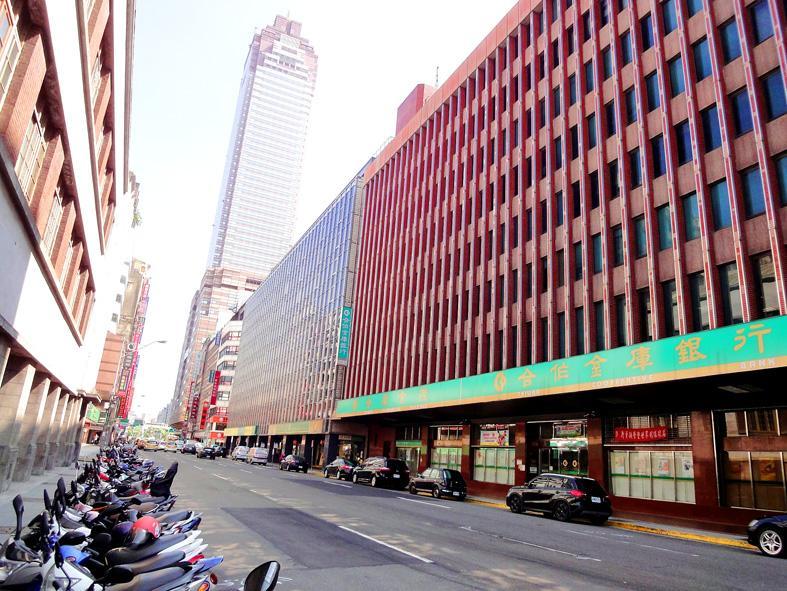State-run Taiwan Cooperative Financial Holding Co (合庫金控) yesterday said it would keep its loan growth target of 7 percent for this year, even though its first-half growth lagged far behind its ambition.
The banking-focused conglomerate’s outstanding loans rose 2.42 percent in the first six months of this year, with lending to small and medium-sized enterprises expanding 3.56 percent and loans to retail customers gaining 4.51 percent, it told an online investors’ conference.
However, the conglomerate said it is unnecessary to revise the target because loan demand is expected to pick up if unfavorable factors ease, such as Russia’s invasion of Ukraine.

Photo: Lu Kuan-cheng, Taipei Times
Momentum would also improve if global inflationary pressure mitigates and the domestic COVID-19 situation improves, it said.
Interest spread and net interest income are forecast to increase on the back of further monetary tightening, Taiwan Cooperative president Chen Mei-tsu (陳美足) said.
The conglomerate’s net income for the first six months totaled NT$9.34 billion (US$311.43 million), down 8.35 percent year-on-year due its financial assets losing value.
Earnings per share were NT$0.64 for the first six months, less than NT$0.7 in the same period a year earlier.
The conglomerate’s net worth shrank 14 percent annually, corporate data showed.
Local shares account for 3 percent of Taiwan Cooperative’s investments, it said, adding that it favors high-dividend stocks, but would adopt a cautious approach amid concerns over market volatility.
The conglomerate’s total net fee income increased 1.35 percent, while income from wealth management operations fell 10.27 percent and income from its credit card business slumped 40.98 percent because market corrections chilled investment interest and a surge in COVID-19 cases curbed consumer spending, it said.
Private consumption regained momentum this quarter, as the government eased COVID-19 control measures amid an approach to “live with the virus,” it said.
The property market, a key source of retail banking, could see resilient housing prices and lackluster transactions for the rest of this year, Taiwan Cooperative officials said.
Developers are expected to keep their pricing policies given rising construction costs, but buyers would turn conservative given monetary tightening and an economic slowdown, the officials said.
Taiwan Cooperative would press ahead with expansions in overseas markets that are expected to generate higher margins, they said.
Its overseas and offshore banking operations contributed 35.32 percent to this year’s earnings as of June, compared with 28.7 percent at the end of last year, corporate data showed.
Banking operations in Cambodia were the conglomerate’s second-most profitable overseas operations, the officials said, adding that it is planning to open branches in central Europe.

SEEKING CLARITY: Washington should not adopt measures that create uncertainties for ‘existing semiconductor investments,’ TSMC said referring to its US$165 billion in the US Taiwan Semiconductor Manufacturing Co (TSMC, 台積電) told the US that any future tariffs on Taiwanese semiconductors could reduce demand for chips and derail its pledge to increase its investment in Arizona. “New import restrictions could jeopardize current US leadership in the competitive technology industry and create uncertainties for many committed semiconductor capital projects in the US, including TSMC Arizona’s significant investment plan in Phoenix,” the chipmaker wrote in a letter to the US Department of Commerce. TSMC issued the warning in response to a solicitation for comments by the department on a possible tariff on semiconductor imports by US President Donald Trump’s

The government has launched a three-pronged strategy to attract local and international talent, aiming to position Taiwan as a new global hub following Nvidia Corp’s announcement that it has chosen Taipei as the site of its Taiwan headquarters. Nvidia cofounder and CEO Jensen Huang (黃仁勳) on Monday last week announced during his keynote speech at the Computex trade show in Taipei that the Nvidia Constellation, the company’s planned Taiwan headquarters, would be located in the Beitou-Shilin Technology Park (北投士林科技園區) in Taipei. Huang’s decision to establish a base in Taiwan is “primarily due to Taiwan’s talent pool and its strength in the semiconductor

An earnings report from semiconductor giant and artificial intelligence (AI) bellwether Nvidia Corp takes center stage for Wall Street this week, as stocks hit a speed bump of worries over US federal deficits driving up Treasury yields. US equities pulled back last week after a torrid rally, as investors turned their attention to tax and spending legislation poised to swell the US government’s US$36 trillion in debt. Long-dated US Treasury yields rose amid the fiscal worries, with the 30-year yield topping 5 percent and hitting its highest level since late 2023. Stocks were dealt another blow on Friday when US President Donald

UNCERTAINTY: Investors remain worried that trade negotiations with Washington could go poorly, given Trump’s inconsistency on tariffs in his second term, experts said The consumer confidence index this month fell for a ninth consecutive month to its lowest level in 13 months, as global trade uncertainties and tariff risks cloud Taiwan’s economic outlook, a survey released yesterday by National Central University found. The biggest decline came from the timing for stock investments, which plunged 11.82 points to 26.82, underscoring bleak investor confidence, it said. “Although the TAIEX reclaimed the 21,000-point mark after the US and China agreed to bury the hatchet for 90 days, investors remain worried that the situation would turn sour later,” said Dachrahn Wu (吳大任), director of the university’s Research Center for